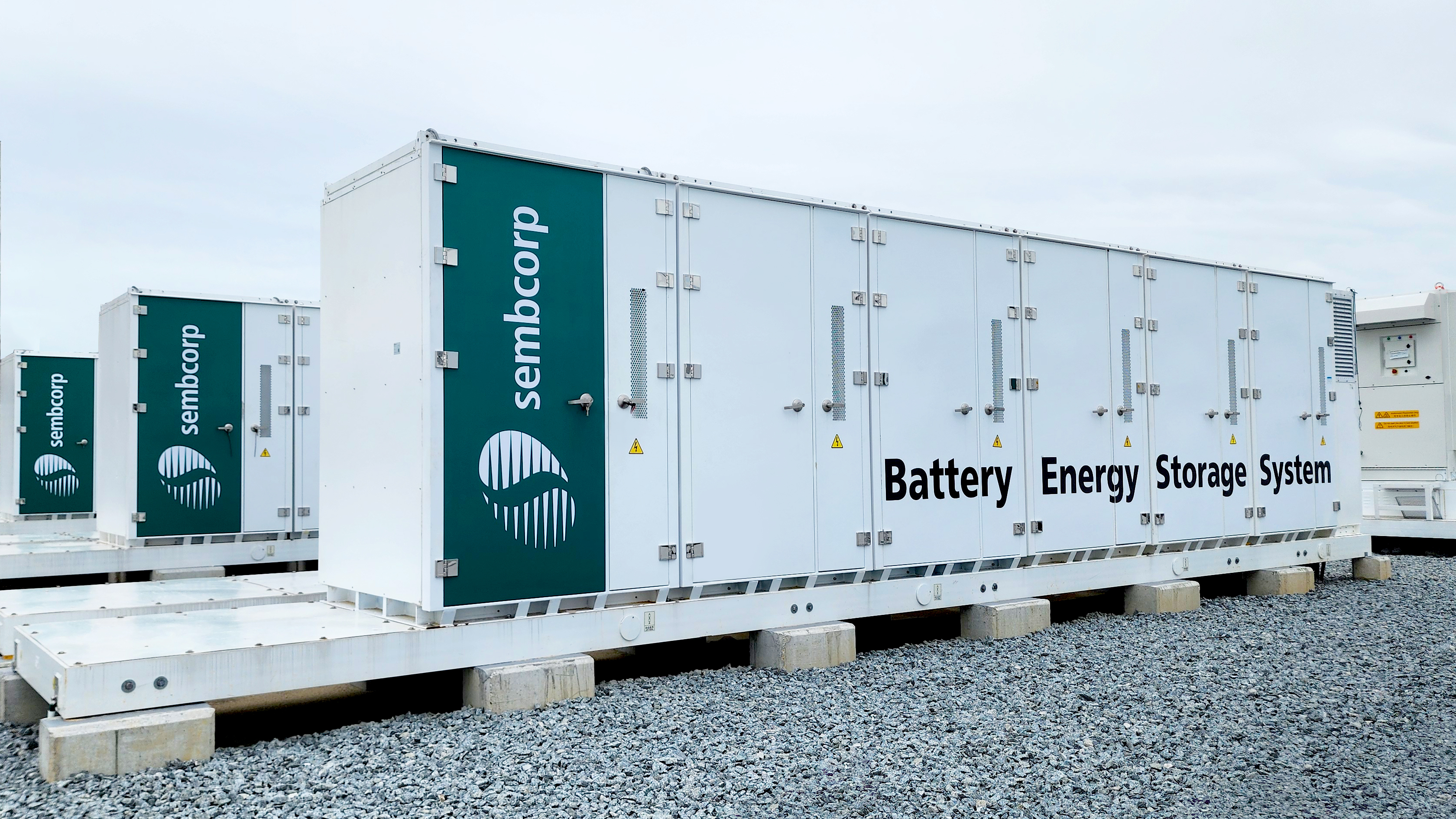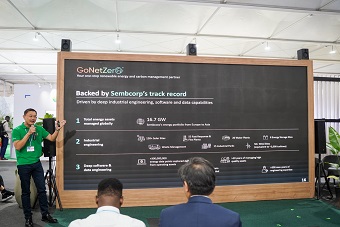24/7 hourly clean energy matching: Transparency and traceability is key
(This article was first published on EcoBusiness, 14 February 2023)
More corporates are responding to climate change by pledging to use clean energy. Rather than just annually matching their emissions with clean energy, some companies are taking a more proactive approach by sourcing clean energy to match the amount of energy they use on an hourly basis. The key to this strategy is providing verifiable and transparent proof of the renewable energy generated at source.
|
Sembcorp Energy Storage System on Jurong Island, Singapore. Image: Sembcorp Industries |
To date, almost 1,000 companies from various industries have committed to emissions reductions or climate neutrality goals. In order to meet these goals, green energy procurement has emerged as an important lever for companies to decarbonise.
In their efforts to source renewable energy, companies are requiring transparent and granular data to not only identify shortfalls in their green energy procurement strategy but also to build credibility for their renewable energy claims.
This demand for improved transparency and traceability is driving innovation in the energy sector.
Employing digital ledger technology, renewable energy can now be tokenised at source and tracked through its life cycle. This ability to verify renewable energy at source serves as a powerful technological foundation for the implementation of 24/7 hourly energy matching.
This round-the-clock tracking of renewables is more transparent than the current dominant approach of annual 100 per cent matching, in which corporates calculate the energy they consume in a year and then buy a matching amount of clean energy in the form of Renewable Energy Certificates (RECs).
With annual matching, there are still periods where companies have to depend on fossil fuel-based electricity from the grid due to the intermittency of renewable energy supply.
Google and Microsoft are examples of some major companies that have set 24/7 energy matching targets.
"Annual 100 per cent renewable strategies are good in that companies match their annual consumption with the same amount of renewable purchases. But they make surplus purchases during the hours of where there are abundant renewables, to offset the consumption in the hours where renewables are less abundant. Ultimately, these strategies will not get us to fully decarbonised grids," said Killian Daly, general manager of EnergyTag.
EnergyTag is a non-profit, independent, industry led initiative founded in 2020 that aims to define and build the market for hourly energy certificates, which it calls Granular Certificates. Granular Certificates offer a major advantage over current RECs by featuring hourly time stamping, allowing consumers to understand where and when their energy is coming from.
"Unlike RECs, Granular Certificates can actually deliver 24/7 decarbonised grids by ensuring that clean energy claims and investments are flowing to the 'right' technologies, such as wind, sun, storage and clean-firm, that are needed to deliver decarbonised grids around the world," Daly added.
In March 2022, EnergyTag published its international standard for 24/7 tracking, which over 100 organisations have adopted.
One such supporting organisation is GoNetZero™.
Real-time verification
GoNetZero™, a corporate venture of Sembcorp Industries , offers a suite of solutions for customers to meet their climate targets, including access to high quality and verified RECs and carbon credits.
Their blockchain-powered digital platform also offers renewable energy and environmental attribute portfolio management, a marketplace for renewable energy certificates and carbon credits and has the capability to verify renewable energy from source in real time.
The company recently launched a 24/7 hourly matching solution, which is Asia's first pilot of hourly matching of renewable energy generation and consumption.
By providing the means to verify renewable energy at the source in real time, GoNetZero™'s platform fosters greater transparency and traceability in clean energy usage.
UBS, a global financial firm, is currently using GoNetZero™'s platform for 24/7 energy matching, and GoNetZero™ plans to roll out this solution to other customers.
Under GoNetZero™'s platform, IoT (Internet of Things) meters are installed at the renewable energy generation site which transmits generation data onto GoNetZero™'s blockchain. Then, energy tokens - which represent the digital copy of the renewable energy generated - are created every half hour.
Energy consumption data from consumers will then be automatically matched with the energy tokens on a sub-hourly basis, allowing consumers to see the level of matching between renewable energy generated and energy consumed. It also provides them with a more accurate and trustworthy way of tracking energy and greater insight on how to reduce their carbon emissions.
A growing movement
The idea of 24/7 hourly energy matching is gaining adopters around the world.
In 2021, an international cohort of companies, governments and stakeholders in the energy sector launched the 24/7 Carbon-Free Energy Compact, which aims to ensure that every kilowatt-hour of electricity consumed is matched with carbon-free electricity sources at every hour for everyday throughout the world.
Google, EnergyTag and GoNetZero™ are among the signatories to the 24/7 Carbon-Free Energy Compact.
"The main benefit of joining the Compact for the industry is being part of a multistakeholder, global community of 111 signatories that provides support, tools and partner organisations need to make 24/7 Carbon-Free Energy a reality for everyone and across the whole energy ecosystem, from energy generation to energy demand," said Irina Lazzerini, principal specialist, clean energy at SEforAll, the coordinating agency, along with UN energy, for the 24/7 Carbon Free Energy Compact.
There are, however, several obstacles that need to be addressed to successfully scale the implementation of 24/7 hourly energy matching. According to Lazzerini, one key challenge is data availability and standardisation, which is vital for transparency and to enhance grid flexibility.
Another challenge is the availability of technology and infrastructure. "Achieving 24/7 carbon-free energy may require advanced technologies in some cases and higher initial costs can be a barrier to the deployment of those technologies," said Lazzerini.
Despite the challenges, Lazzerini anticipates that the 24/7 carbon-free energy movement will gain more traction in the future, as more organisations recognise matching demand with clean electricity hourly as a key strategy for decarbonisation.
She said: "By joining 24/7 carbon-free energy movement, business will have greater knowledge and control of their energy and environmental performances, allowing for increased transparency of corporate sustainability claims and ESG scores, attracting cheaper capital and be seen as energy transition champions."
Related
|
|
||||||||

